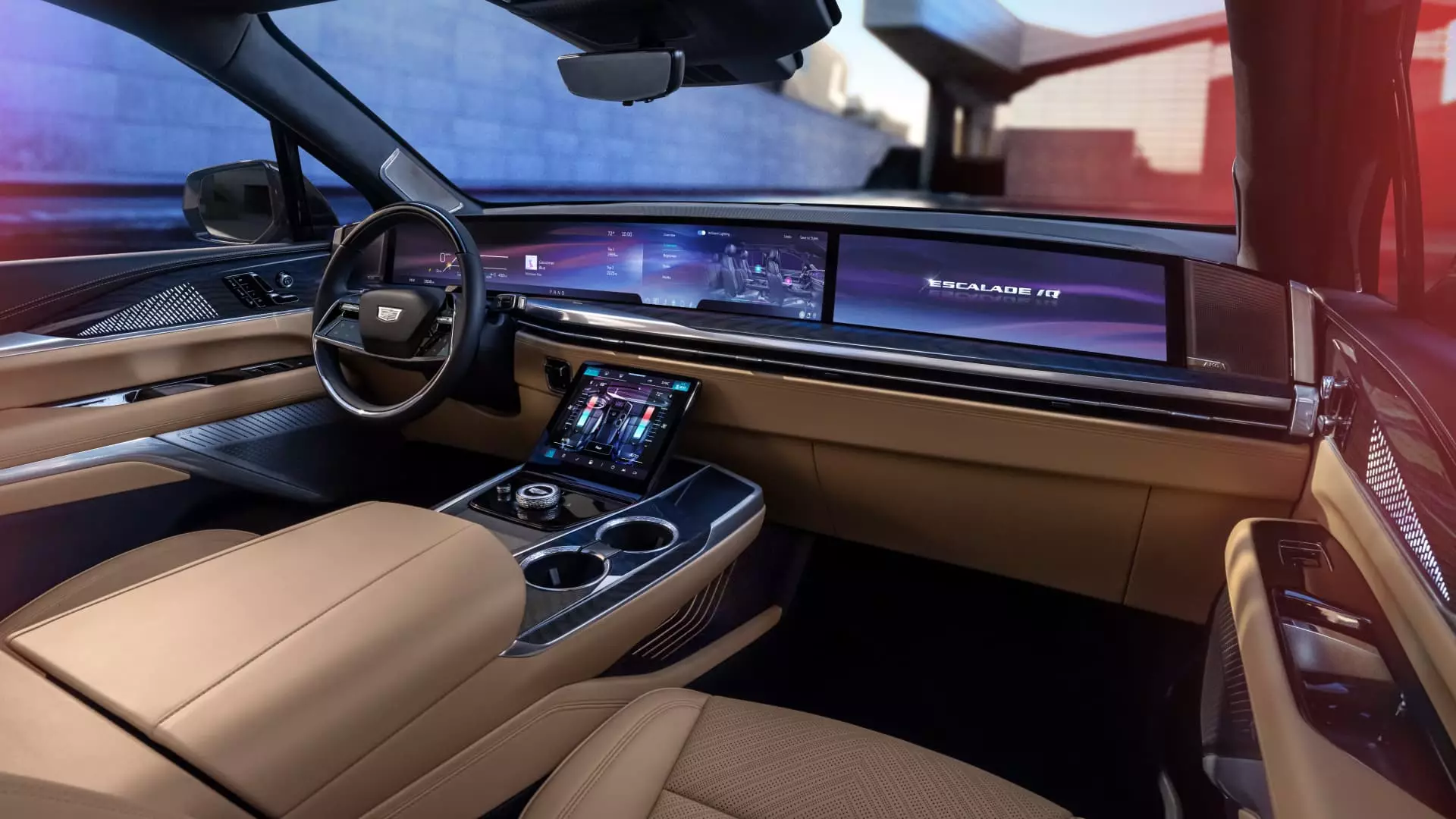Qualcomm, primarily known for its chips and modems in Android phones, has expanded its reach into the automotive industry with its Snapdragon Digital Chassis. This package includes hardware chips, sensors, and software that automakers like GM, Hyundai, and Volvo can utilize in their vehicles. Qualcomm aims to leverage the growing interest in generative artificial intelligence (AI) to persuade automakers to invest in their chips and explore new possibilities, such as smart assistants for drivers. While automotive revenue currently only accounts for a small portion of Qualcomm’s overall sales, the company foresees a significant increase in sales and adoption of their chips in future cars.
Qualcomm’s chips and software have already made their presence felt in the automotive industry. For instance, GM’s Cadillac Escalade IQ SUV utilizes Qualcomm chips and software for its dashboard display, lane-keeping, and hands-free driving features. However, it’s worth noting that the SUV does not support Apple CarPlay or Android Auto, which emphasizes the importance of the in-car computer experience provided by Qualcomm’s technology. Nevertheless, Qualcomm faces strong competition from other chipmakers like Intel, Nvidia, Continental, NXP Semiconductors, and Bosch, all vying to supply crucial parts and chips that power dashboards and driver assistance systems.
Qualcomm recently showcased the potential future scenarios that their chips could enable with the help of large language models and generative AI. These demonstrations were all running on the car’s computer, highlighting Qualcomm’s ambition to position itself as an AI company. For example, Qualcomm exhibited how a car assistant could find recipes and create shopping lists, or even generate AI-generated birthday cards for the driver’s family members. This glimpse into the future showcases Qualcomm’s vision of cars becoming more like personal computers, as declared by CEO Cristiano Amon.
Qualcomm is investing in low-power smartphone GPUs and AI accelerators to establish itself as a prominent player in the AI space. However, investors have primarily directed their attention towards Nvidia’s cloud GPUs, which power applications like ChatGPT. As a result, Nvidia’s stock has tripled this year, while Qualcomm’s shares have only seen a modest 5% increase. Nonetheless, Qualcomm has short-term goals of using their language models to create smart user guides based on dense car manuals. Additionally, they are exploring driver monitoring techniques that utilize machine learning to detect distractions or drowsiness, ultimately ensuring safer driving experiences.
Qualcomm’s Snapdragon Digital Chassis holds immense potential for the automotive industry. By providing over-the-air software upgrades, Qualcomm envisions automakers offering new self-driving capabilities to their customers as a subscription or even a free trial. This not only enhances the driving experience but also opens up new revenue streams for the industry. Adding context and personalization to the driving experience is a key focus for Qualcomm, as they collaborate with automakers to bring about significant advancements in the field.
Qualcomm’s Snapdragon Digital Chassis offers a comprehensive solution to automakers, combining hardware chips, sensors, and software. With its recent demonstrations of generative AI and language models, Qualcomm showcases its potential to revolutionize the automotive industry. As cars evolve into new computing platforms, Qualcomm aims to position itself as an AI company and drive innovation in the space. While facing competition from other chipmakers, Qualcomm’s vision and dedication to enhancing the in-car experience through advancements in AI set it apart in the market. The future looks promising for Qualcomm as it projects substantial growth in automotive sales and envisions a world where cars are not just modes of transportation, but also personalized smart assistants.


Leave a Reply